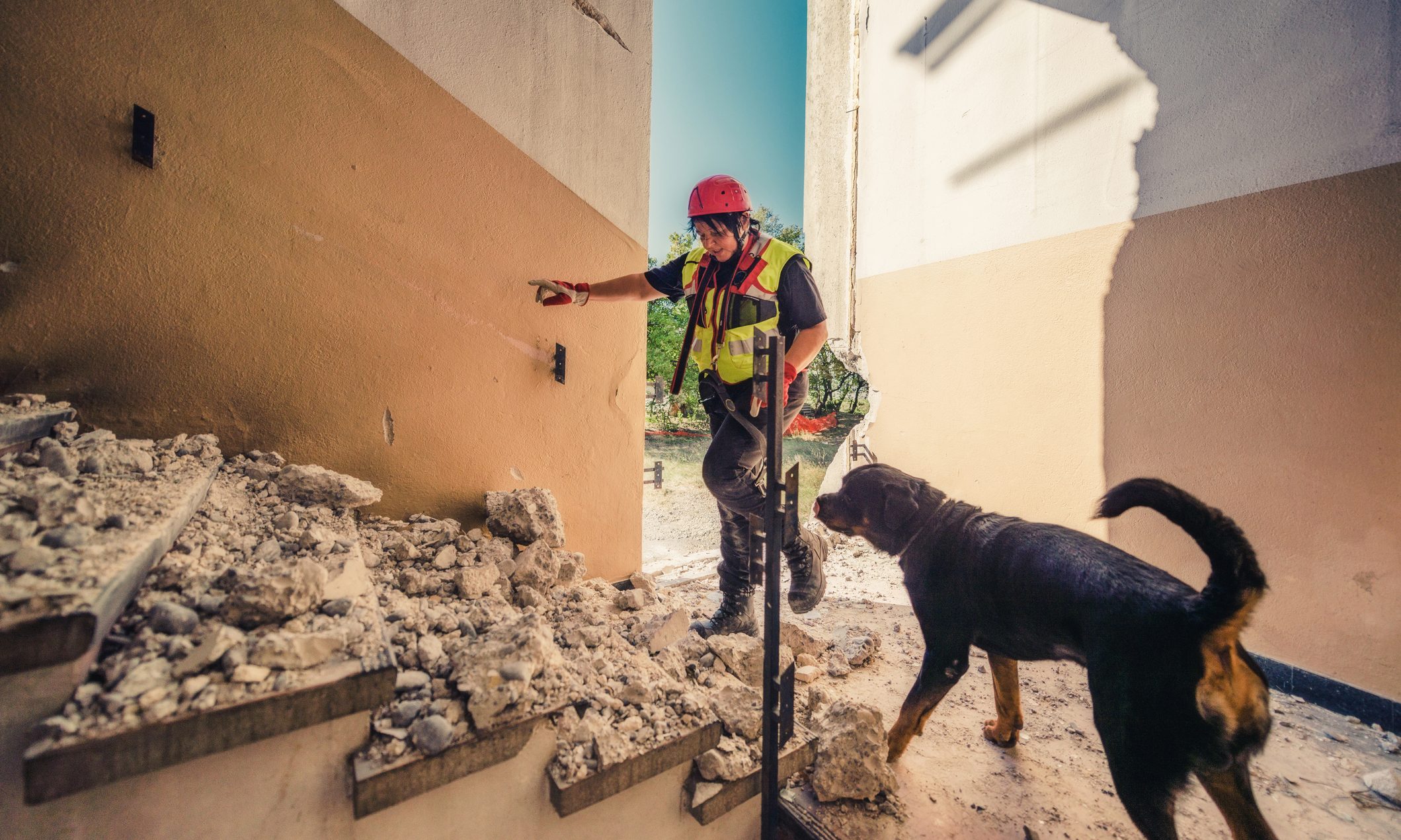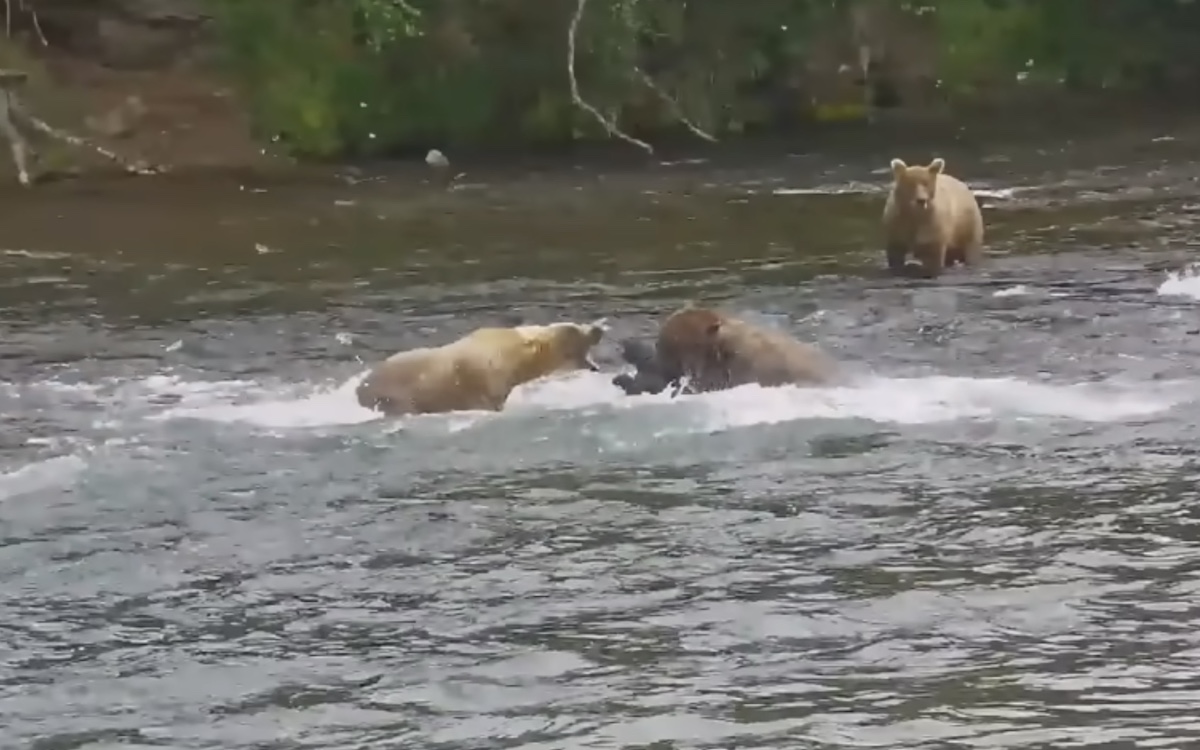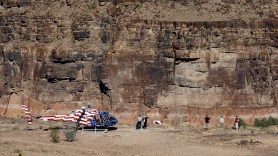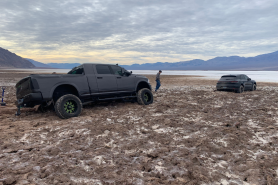

As rescue efforts grow more desperate in the wake of the Turkey-Syria earthquake, specially trained search-and-rescue dogs from across the U.S. are being shipped out to help.
Videos by Outdoors with Bear Grylls
The earthquake, which struck regions of Turkey and Syria on February 6, destroyed hundreds of buildings and left tens of thousands dead. The international response has been massive, and rescuers have flown in from all over the world to help locate victims who still remain buried in the rubble. Among them is a crew of American rescuers—the International Urban Search and Rescue Team (IUSRT). The team brought in special equipment, like devices that can detect sound and movement beneath heavy debris, as well as highly trained rescue dogs.
The dogs, which usually work on search and rescue teams in California and Virginia, are trained to sniff out lost and injured people. At the earthquake site, they use techniques similar to what they might use while searching for someone lost in the backcountry, or while locating a victim buried in an avalanche.
According to reporting from NPR, canine rescuers can distinguish between alive and deceased victims. They can tell if someone has been newly trapped or has been confined for a long time. They can also use the process of elimination to distinguish new scents from those of rescuers or bystanders.
In this case, the dogs are directed to search for long-confined victims. At this point, those people have been buried for more than a week, which means the ones who are still alive might not have much time left. This is especially true given the time of year—temperatures have consistently been dropping below freezing, which doesn’t bode well for victims trapped without the resources to keep warm.
The American dog team isn’t the only one on the job. Just days earlier, Mexico City dispatched 16 of its best rescue dogs to the scene. The Mexico City team is trained specifically for earthquake response. These dogs made national headlines when they helped rescue more than a dozen victims after Mexico’s destructive 2017 earthquake.
Several other countries, including Croatia, Germany, Libya, and Poland, have also dispatched dog teams to Syria and Turkey over the past week. On February 9, two yellow labs—Romeo and Julie—helped the Indian Army locate and rescue a six-year-old girl buried in the rubble in Nurdagi, Turkey.
Now more than a week after the quake, rescue efforts are beginning to wane. Still, many teams remain hopeful that more people can still be saved.









